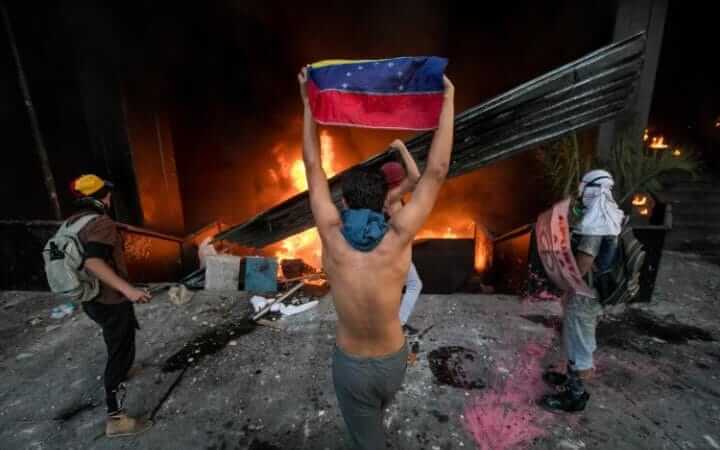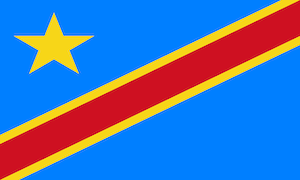June 27, 2017

Weekly report: June 16th, 2017

On Wednesday, Prime Minister Hun Sen lifted an order exiling Sam Rainsy, the former opposition leader who previously served as the President of the Cambodia National Rescue Party (CNRP). It remains uncertain whether Mr. Rainsy will be imprisoned upon his return; without a royal pardon, the likelihood of arrest appears high in the face of numerous convictions amassed against him for criticizing the government and alleging the state had ordered the assassinations of political analyst Kem Ley.
The local (commune) elections on June 4 led to a narrow victory for Prime Minister Hun Sen’s Cambodian People’s Party, but the process was criticized by Human Rights Watch as neither free or fair due to threats to free speech and imprisonment of political opponents. Nevertheless, the CNRP garnered almost half of the votes, signalling the possibility of strong competition in the 2018 Parliamentary elections. Mr. Rainsy has said he will run for Prime Minister Hun Sen’s position in next year’s elections.

Nine former African presidents and former UN Secretary-General Kofi Annan have warned that the ongoing political crisis in the DRC stemming from President Joseph Kabila’s refusal to step down at the end of his constitutional mandate and the failure to organize an election to replace him puts the country’s future in “grave danger.” A December agreement between Kabila’s ruling coalition and opposition leaders requires that an election be held before the end of the year, however it appears increasingly unlikely that one will take place in the face of significant delays in voter registration and mobilizing financing.
The DRC is also facing a health crisis, as it was reported this week that two outbreaks of vaccine-derived polio, which occurs in areas with low immunization rates and is exacerbated in communities with poor sanitation, have been identified in the country. At least four cases of the disease have been identified, and the World Health Organization has warned that there is a high risk that the virus could spread.

A new report by Amnesty International criticizes treatment of asylum seekers by Mexico and the United States after the Trump administration enacted stricter immigration measures with the Executive Order on Border Security and Immigration Enforcement Improvements on January 25, 2017. The report, based on extensive field research on the US-Mexican border since February 2017, cites the endangerment of asylum seekers trying to cross the Mexican border into the United States.
The report claims that people fleeing violence in El Salvador, Honduras, Guatemala are being turned away or held in overcrowded detention centers without the option to claim asylum, and are often turned back to Mexico, which in turn deports them back to their countries of origin – a violation of international law. Amnesty International’s Americas Director, Erika Guevara-Rosas, stated that the United States and Mexico are “partners in crime” in the push-backs, which Guevara-Rosas deemed a “burgeoning human rights catastrophe.”

Humanitarian agencies and human rights organizations are growing increasingly concerned after a UN panel noted that the intensifying airstrikes by the American-led coalition against Islamic State targets in Syria have killed hundreds of civilians in and around Raqqa, and have displaced 160,000 people. Focusing on American military conduct for the first time since the conflict in Syria began, the panel stated that the intensification of airstrikes in the campaign to retake Raqqa has taken a remarkable civilian toll, and resulted in a “staggering loss of civilian life.” Groups monitoring the conflict’s effect on civilians have voiced their increasing concern over these developments, which was further underscored last week by reports that coalition forces had used munitions containing white phosphorous, which is banned in populated areas under international law.
1.https://www.nytimes.com/2017/06/14/world/middleeast/syria-airstrikes-civilians.html?mcubz=0

Protesters set fire to the Supreme Court in Venezuela on Monday, continuing three months of unrest throughout Venezuela. The violence broke out after the Supreme Court voted to reject a measure to prevent President Nicolas Maduro from rewriting the country’s constitution by electing a constituent assembly. The legal challenge was brought by Luisa Ortega, a former ally of President Maduro who now opposes the regime; Ms. Ortega has also alleged that 13 judges appointed to the court in 2015 were put there illegally and should be replaced.
Last week, the head of Venezuela’s National Defence Council, Alexis López Ramírez, resigned over President Maduro’s plans to create the constituent assembly, citing disagreement with how the members would be selected and the way it was convened. In the face of triple-digit inflation, as well as dire shortages of food and medicine, protesters demand President Maduro’s resignation and are calling for elections.

The leader of Zimbabwe’s opposition party, Movement for Democratic Change – Tsvangirayi (MDC-T), is launching a challenge 93-year-old President Robert Mugabe in next year’s general election. This will be the fourth time Morgan Tzvangirai has challenged President Mugabe in a presidential election. Mugabe’s Zanu-PF party is campaigning to win over voters, particularly the youth, amid frustration at high unemployment, skyrocketing inflation, and a breakdown in social services.
Meanwhile, Zimbabwe’s Catholic Bishops have made an appeal to President Mugabe and other political leaders to reject violence and coercion in the 2018 general elections, and urged leaders to respect the Constitution of Zimbabwe, which deems that elections should be free and fair.

Officials say that the special counsel overseeing the investigation into Russian interference in the 2016 presidential election has widened the probe to include whether President Trump attempted to obstruct justice. The obstruction of justice investigation into Trump, who previously was not personally under investigation, began days after FBI Director James Comey was fired on May 9. Comey testified last week before the Senate Intelligence Committee that he believed that he was fired “in some way, to change — or the endeavor was to change the way the Russia investigation was being conducted.” Officials have also stated that investigators are also now looking for evidence of possible financial crimes committed by Trump associates.
Also this week, 196 Democratic members of Congress agreed to file a lawsuit against Trump, alleging that he is in violation of the foreign emoluments clause of the Constitution, which restricts the acceptance of gifts and benefits from foreign leaders. The lawsuit, which is one of several that have been recently filed alleging constitutional violations stemming from Trump’s business ties, has so far drawn more congressional plaintiffs than any legal action previously taken against a president, although so far no Republicans have joined. The suit alleges that by retaining interests in his businesses, Trump may be receiving benefits from foreign states without Congressional approval.
Additionally, in a serious incident on Wednesday a lone gunman opened fire on members of the Republican congressional baseball team as they practiced for an annual charity game that takes place between Democratic and Republican members of Congress. Four people were injured, including House majority whip Steve Scalise, who is still in critical condition. Information is still coming out about the gunman,James Hodgkinson, who was killed in the shootout, but he appears to have had a record of domestic violence and was a fervent opponent of President Trump. The incident, although there was a great deal of unity and solidarity between Democrats and Republicans in its immediate aftermath, will likely set off a renewed debate over gun control policies, which tends to be contentious and highly partisan in the US.